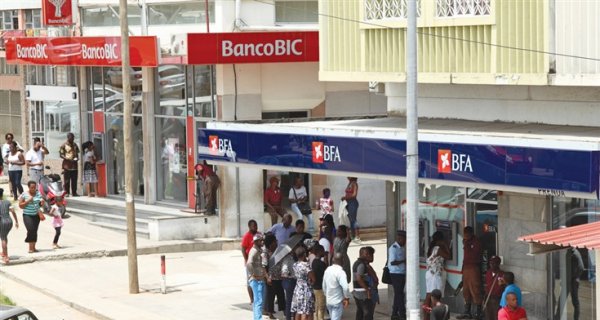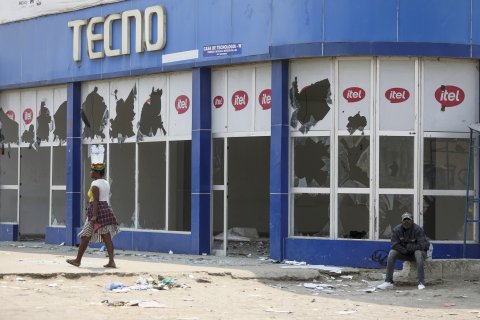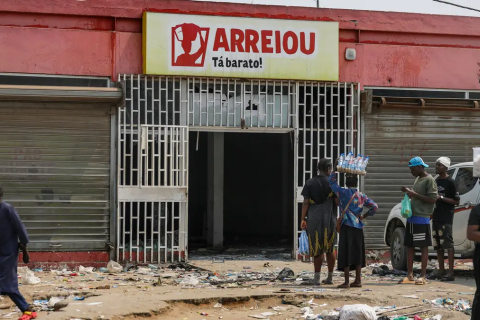Osvaldo Malanga said that bankruptcy is equal to death, he does not want banking institutions to be declared insolvent, but at the same time, he admits that they can see their licenses revoked by the regulator, particularly in the area of share capital.
"Bankruptcy is equal to death and when someone dies we all lose, the State loses because it does not collect taxes, we lose citizens, because we lose jobs, and we lose everyone because it is bad when an entity that should help the economy disappears", said the specialist.
He admitted, however, bankruptcy of banking institutions in strict compliance with the new requirement of the National Bank of Angola (BNA) on share capital for commercial banks, now set at 15 billion kwanzas.
"I think it could happen [bankruptcy], we are talking about the BNA notice setting twice the amount that was previously required, now it is 15 billion kwanzas", he replied to journalists.
Speaking on the sidelines of the 3rd Angolan Congress on Banking Law, where he spoke about the "Insolvency of Banking Financial Institutions", Osvaldo Malanga pointed to reckless management and money laundering as some of the causes of bank insolvency.
An "unprudent management, which does not bring financial return to the institution, results in the revocation of the license, we can also increase money laundering", he stressed.
"Because if the institution is used to launder money, the BNA can also revoke the license", he maintained, considering that politically exposed people in the banking sector also influence the revocation of licenses of institutions.
"The issue of politically exposed people also influences the financial system, because we have seen that if these people do not meet any of the requirements that the law requires, then it could also be one of the causes of license revocation," he explained.
The BNA has recently revoked licenses for banking and non-banking financial institutions, as happened last October with Banco Prestígio, "due to the lack of maintenance of regulatory own funds".
In recent years, the central bank has withdrawn licenses from the Mais, Postal, Angolano de Negócios e Comércio (BANC) and Kwanza Invest banks, due to "various irregularities and defaults".
For the legal expert, the regulator's actions take place in strict compliance with the General Regime for Financial Credit Institutions and the Law on Corporate Recovery and Insolvency and, "therefore, have legal support".
And the BNA, he argued, "does not revoke licenses just for the sake of revoking them, there is a previous administrative process in which the BNA makes several alerts to the financial institution, there are corrective measures, such as the issue of social capital".
"It is normal for those concerned to complain, but that has a legal procedure, has legal rules that provide for prudential or corrective intervention by the BNA and then revocation as a measure of last resort", stressed Osvaldo Malanga.
"Before the regime we currently have, which has been in force since last year, bankruptcy could only be declared by a court, but now, in banking, bankruptcy has an administrative nature, that is, who will declare that an institution is bankrupt or not the BNA, it will no longer be the courts", he pointed out.
The expert also explained that the revocation of a banking institution's license is a measure of last resort, since the process begins with a prudential intervention by the regulator.
"Yes, there is, there is prudential intervention, that is, the BNA warns about the exercise of financial activity, if there is a need to increase the share capital, if there is not enough solvency for the exercise of that activity", he stressed.
The III Angolan Congress of Banking Law takes place this Friday, in Luanda, in an organization of Altafinança – an Angolan financial consulting company.







